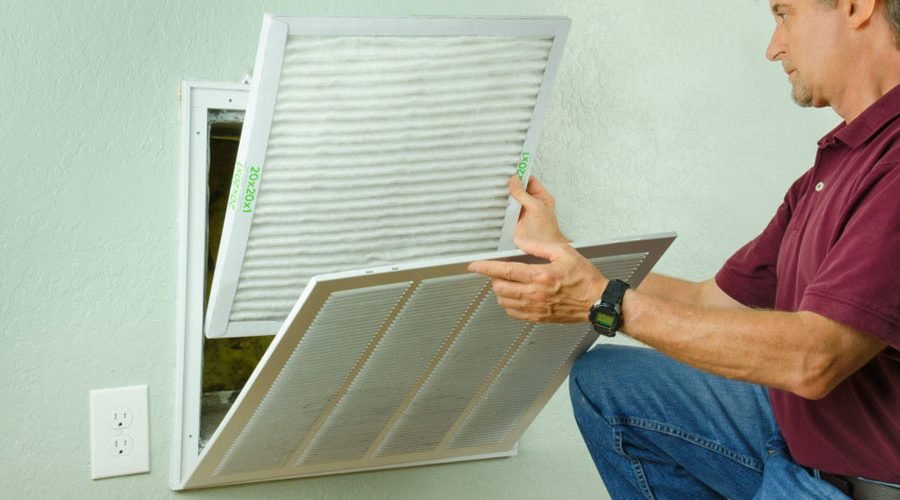A home air filter is an essential part of keeping the air inside your home healthy and clean. Air filters capture airborne particles such as dust, pollen, or pet dander that can trigger allergies or asthma symptoms. They also help reduce odors in your home, making it more pleasant to be in. Let’s find out how they work and why they are essential.
Table of Contents
How Do Air Filters Work?
Air filters trap particles in their fibers as air passes through them. The type of filter you need depends on the size of the particle you want to trap; the larger the particle, the bigger the pore size needed for trapping it. Standard pleated air filters typically have a MERV rating (Minimum Efficiency Reporting Value), which ranges from 1-20 and indicates how effectively the filter captures small particles such as smoke or bacteria. The higher the MERV rating, the smaller particles it traps and, thus, the better filtration power it has.
The Importance of Air Filters
Air filters are important because they help improve indoor air quality by trapping harmful airborne small particles that can cause health issues like allergies or asthma attacks. It’s especially important to install high-efficiency air filters if anyone in your family has respiratory problems or severe allergies since these people are considered most at risk for complications due to poor air quality.
Additionally, having clean air in your home will make it smell better, so you don’t have to deal with unpleasant odors emanating from your HVAC system or other sources like pets or cooking smells.
What Happens When You Do Not Change Your Air Filters?
It’s important to change air filters regularly because they help keep your home or office clean and healthy. Air filters remove large particles, such as dust, pet hair, and pollen, from the air before it enters your lungs. They also capture smaller particles, such as smoke and bacteria. Over time, air filters become clogged with dust and other debris, reducing their ability to clean the air. Unfiltered airflow also poses a greater risk for allergies or asthma attacks, as well as spreading germs around a residence by circulating unclean air.
Failing to change your air filters could cause your HVAC system to run at a suboptimal level, thus leading to an increase in energy bills and a decrease in the quality of home comfort. Moreover, it can significantly impact the lifespan of the equipment, causing more frequent repairs and replacements. Indoor air quality can be detrimentally affected, too, when dust and other airborne particles accumulate in clogged filters over time. Ultimately, replacing air filters on schedule is integral to maintaining HVAC efficiency, behavioral health, and indoor air quality.
Concluding Remarks
Having a good-quality 24x30x1 air filter is essential for maintaining healthy indoor air quality and reducing allergens or other contaminants that can cause health issues in your family members or pets. You should choose an appropriate MERV rating depending on what types of particles you want to trap.
Make sure you change them regularly according to manufacturer recommendations so that they can continue doing their job efficiently. These simple steps will help ensure everyone in your family has access to clean and healthy indoor air.





